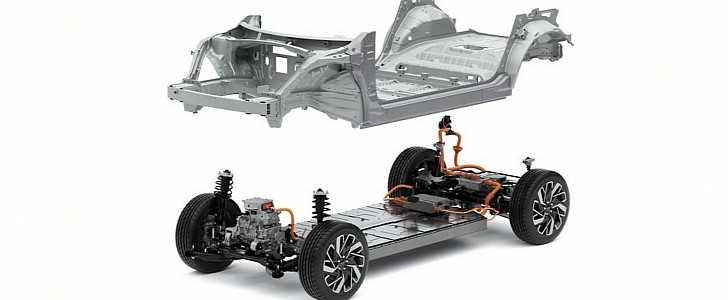It was already clear that Hyundai was fully committed to electric cars. The IONIQ 5 is considered a brilliant piece of engineering, and there are more IONIQ models to join the family: a larger SUV (IONIQ 7) and a sedan (IONIQ 6). However, Automotive News discovered elements to that commitment: a $7.4 billion investment in the U.S. and a new EV platform.
We’re obviously not talking about the E-GMP, which already underpins the Hyundai IONIQ 5 and the Kia EV6. According to Hyundai’s CEO, Jaehoon Chang, it would not be enough for the brand to achieve a new goal: 1.7 million EVs per year by 2026. Before that, Hyundai said it would sell 1 million cars per year in 2025. The 1.7-million-unit plan represents a 70% increase in just one year, which is pretty aggressive.
With the new platform, Hyundai plans to offer 13 electric cars by 2026 – and we are talking only about the Hyundai brand, not Kia or Genesis. The IONIQ family has only four components so far: the original IONIQ, the IONIQ 5, 6, and 7. Hyundai also has the Kona Electric, which brings the number of EVs to five. That means we will see eight new models until 2026, and that number may be even higher: the Kona Electric and the original IONIQ should be replaced by other vehicles by then.
To achieve these goals, Chang told Automotive News that Hyundai would halt investments into new combustion engines to use that money into R&D (research and development) for electric cars. Like Japanese carmakers, Hyundai is also pursuing solid-state batteries, but it does not think they will be available by 2030. What it can promise for that year is to turn Genesis into an electric-only brand. The transition will start in 2025.
The fact that the Hyundai Group pursues an electric future despite the massive battery pack recall it had to endure with the Kona Electric shows that any automaker serious about surviving in the next few years has no other option. The ones that perform this transition in the most competent way will have a massive competitive advantage. From what we have seen from Hyundai so far, the company is a strong candidate to be among the best ones in this process.
With the new platform, Hyundai plans to offer 13 electric cars by 2026 – and we are talking only about the Hyundai brand, not Kia or Genesis. The IONIQ family has only four components so far: the original IONIQ, the IONIQ 5, 6, and 7. Hyundai also has the Kona Electric, which brings the number of EVs to five. That means we will see eight new models until 2026, and that number may be even higher: the Kona Electric and the original IONIQ should be replaced by other vehicles by then.
To achieve these goals, Chang told Automotive News that Hyundai would halt investments into new combustion engines to use that money into R&D (research and development) for electric cars. Like Japanese carmakers, Hyundai is also pursuing solid-state batteries, but it does not think they will be available by 2030. What it can promise for that year is to turn Genesis into an electric-only brand. The transition will start in 2025.
The fact that the Hyundai Group pursues an electric future despite the massive battery pack recall it had to endure with the Kona Electric shows that any automaker serious about surviving in the next few years has no other option. The ones that perform this transition in the most competent way will have a massive competitive advantage. From what we have seen from Hyundai so far, the company is a strong candidate to be among the best ones in this process.












